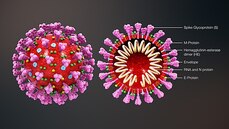 . This blog post is based on a conversation between Musaddiq Khan, Director, Clinical Program Operations at Eli Lilly and the #CoffeeBuddies, a virtual discussion group hosted by Graham Combe and chaired by Professor Tony Sedgwick. Book to join #CoffeeBuddies on Tuesdays and Thursdays at 2.30 pm BST (GMT+1 hr) at Eventbrite.
Clinical programs operations teams focus on the efficient delivery of clinical trials, with time and data quality as the metrics of success. The impact of the Covid-19 outbreak on clinical development The current pandemic, and the different states of lockdown around the world, have had differing effects on clinical development, dependent on the area of research. Companies working on vaccines and therapeutics for SARS CoV-2 infections have had access to greater funding. They have also seen communications barriers coming down, allowing companies and research organisations to be able to engage more quickly and more directly with regulators. By changing the priorities within pipelines, pausing non-Covid-19 clinical trials, and putting new projects on hold, companies have been able to focus people and resources on pandemic research. Companies working outside the field will also have had to cancel projects and put them on hold. For all of these, as the world moves forward, there will be a need for a second round of pipeline prioritisation, particularly in the light of the warnings of global recession. During the outbreak, clinical trials may be smaller and quicker, with different stages running in parallel. However, it will be important to maintain the balance of data and speed to keep the confidence of health care professionals and patients. A positive sign of the desire from the general population to do what it can about the virus is the response to the WHO's conditional backing of challenge studies for a Covid-19 vaccine. As of 21 May 2020, more than 24,000 people in the US have signed up to volunteer for challenge studies. Making the most of the energy in the industry The urgency to get a treatment or prophylactic for the coronavirus infection has led to heightened energy across the industry, but for individuals, maintaining this level of energy may be hard long term. For some, working from home and meeting via video calling, and so not commuting helps them. For others, however, who have caring responsibilities, are shielding or who find Zoom calling exhausting it can be more challenging. Understanding people's motivations and stress points can help to manage the situation. It is hard to create and maintain the same kind of urgency for chronic disease, perhaps because the coronavirus affects everyone, but chronic diseases, especially the rarer ones, are less in the spotlight. Getting back to work Companies looking to get back to work will have to face a number of challenges. Some groups of people, such as lab staff, will find it hard to work from home, and may have to work shifts to get around social distancing. Where the pandemic has forced companies to close clinical sites, management will need to work out how studies can be restarted, for example ensuring the integrity of data. Into the future Moving forward, companies will have to reassess how clinical trials are carried out. One approach is to carry out decentralised clinical trials taking the study to the patient, rather than the patient to the site. Virtual clinical trials may use apps, devices, and wearable monitors, have local points where participants can drop off clinical samples, or have nurses doing clinical trial home visits. Hybrid studies include some site visits and some remote monitoring. The pandemic could be the catalyst to normalise decentralised trials, and the pharma industry and CROs need to be ready. The levels of energy in the industry, and the levels of trust from the public, will depend on the success of any preventive or therapeutic approaches. It will be interesting to see how many of the current changes remain in place once the sense of urgency falls. Things from this time that it would be good to hold onto include:
0 Comments
Leave a Reply. |
Archives
July 2024
Categories |
 RSS Feed
RSS Feed
